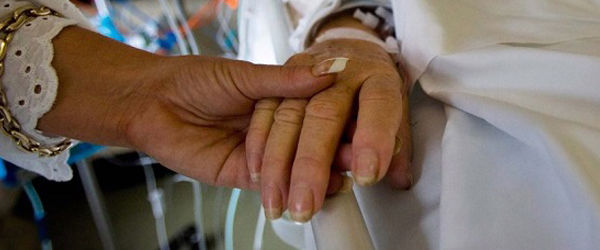It might seem like there's an electronic database for everything, but if someone is trying to prove the tax-exempt status of a nonprofit organization such as a religious charity or school, the process is substantially lower-tech and not necessarily easily searchable.On top of that, the system is fraught with potential pitfalls for organizations that try to maneuver through the regulations for the tax status known as 501(c)(3), such as in an effort to provide donors with full disclosure about their charitable status.Many people are aware of the 501(c)(3) tax-exempt status of churches and church-related entities, because of concerns about political activities, some of which are prohibited for such entities.But Deirdre Dessingue, associate general counsel for the U.S. Conference of Catholic Bishops, told Catholic News Service that a more common problem for 501(c)(3) entities is the complex and outdated system for proving who is and isn't a tax-exempt organization.Dessingue said the situation arises out of what is known as an IRS group ruling that since 1946 has granted an exemption from federal income tax to all the institutions listed in the 2,000-page Official Catholic Directory — all 40,000 or so of them.As information about the group ruling on the USCCB website explains, since 1946, the USCCB has served as the central organization holding the group tax exemption. It is responsible for establishing eligibility criteria for inclusion in the ruling, for monitoring its administration and for resolving eligibility issues.But, Dessingue explained, individual institutions are responsible for managing their own situations, following the guidance of their tax advisers.She explained that the situation for Catholic group-ruling organizations became even more difficult to navigate because of the widespread rise in popularity of online databases as the authoritative source for tax exemption information at about the same time as the passage of the 2006 Pension Protection Act. It included new provisions meant to promote financial transparency among organizations, including a provision automatically revoking the tax-exempt status of organizations that fail to file Form 990 for three consecutive years.Both the IRS and those who hold the exemptions are frustrated by the mounting number of ways in which proving an entity's tax status can be complicated.For example, she explained, although many Catholic group ruling entities are exempt from filing Form 990, some have been listed by the IRS as having their tax-exempt status revoked after they may have unnecessarily filed Form 990, then later realized they didn't need to and stopped doing so.But if the IRS didn't receive an update of that unnecessary Form 990 for three years, and the organization never told the IRS — by filing another form — that they were going to stop sending it, in some cases the institution is probably now listed as having had its exemption automatically revoked, even though it's legally still entitled to use it, Dessingue said.To make matters worse, the list of revoked organizations is searchable through the IRS website, but there is no similar electronic listing that Catholic group ruling entities can point to and prove they are eligible for the tax exemption.The fat, maroon-bound Official Catholic Directory, known to longtime users as the Kenedy directory, for its publisher's name, is a fixture in dioceses, libraries and many parishes. But it's not available anywhere in an electronic form. And, Dessingue said, many donors no longer accept the directory's page to verify that an organization is covered by the group ruling. They want to consult electronic lists.Other institutions have similar group rulings. In 2011, the Advisory Committee on Tax-Exempt and Government Entities reported that 4,300 group rulings cover an estimated 650,000-700,000 separate organizations.Besides churches, group rulings cover tens of thousands of what the IRS calls "subordinate organizations" connected to the Knights of Columbus, the Boy Scouts, the American Cancer Society, Rotary International, the Veterans of Foreign Wars and some PTAs, among others.The umbrella organizations are listed in the IRS Publication 78, which is searchable online. However, the subordinate organizations aren't in Publication 78. But unless a group-ruling entity files Form 990, it likely won't be listed in the database by its own name.It's covered by the exemption, because it's in the Official Catholic Directory, but unless it in some other way comes to the IRS attention as an individual exempt organization, proving it's exempt will require copies of the group-ruling letter and of pertinent pages of the directory, Dessingue said.Churches aren't required to file a Form 990, but some other types of nonprofits, even those under a group ruling, need to do so.Besides problems with proving tax-exempt status, Dessingue said sometimes an exempt entity needs to know exactly what category of public charity it is considered, to meet application criteria of private foundation that's important to grant-making organizations, for example. Again, the particular subcategory isn't discernible under the group-ruling system.As the advisory committee noted in the 2011 report, there have been no changes to the group-ruling system since 1980 — before the Internet came into the picture and before new public disclosure standards became common. And both the agency and those who hold the exemptions are frustrated by the mounting number of ways in which proving an entity's tax status can be complicated.Dismantling the system as it's existed since the 1940s "would be chaotic," Dessingue said. "But as it is, it's not working very well."The committee report included pages of concerns raised by "stakeholders," and pages more of discussion of possible changes and the complications they would cause. It concluded with half a dozen recommendations for revising group exemption procedures "to achieve greater transparency, accountability and responsibility." Dessingue said the IRS has told group-ruling holders it would be sending them a survey to gather more information on how they administer their rulings.—CNS

